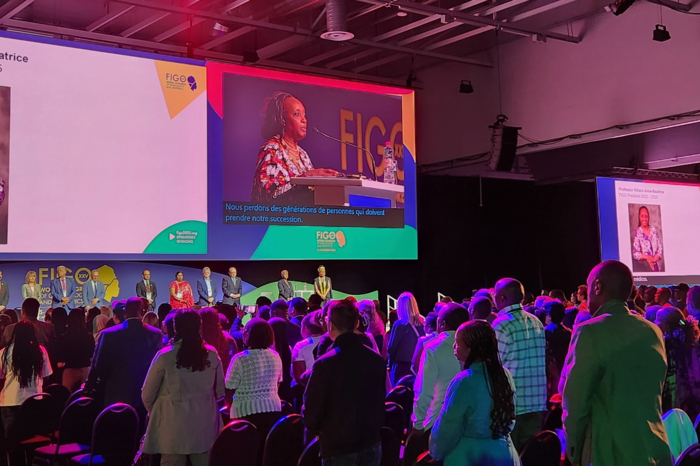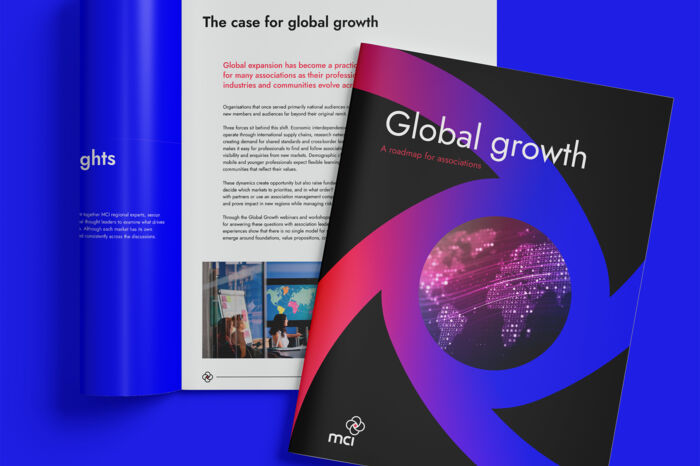
Trend #4 - community-centric events
Moving through 2024, we also see an increasing emphasis on community-centric B2B events, particularly when talking about networking, as they're known for fostering long-term relationships and making attendees feel like they belong. These events transcend traditional networking as most know it and help build a supportive community around a shared interest or interest.
What community-centric means can be seen in HBSC's Cities of the Future event created by the MCI team. It focused on fostering smart connections within a business, technology and data ecosystem and offered an immersive environment where attendees could interact, connect and learn about the connected-city concept.
Designed to earmark HSBC as a corporation that facilitates innovation and collaboration, this B2B event served to create a sense of community among attendees by providing a place in which to relax and fully engage with inspiring demos.
Community-centric events like these encourage deep engagement and make ongoing interaction, knowledge-sharing and collaboration possible. These outcomes naturally lead to a more vibrant industry ecosystem that's able to convert event attendees into advocates for your organisation and active participants in the growth of your industry.
Trend #5 - post-event on-demand content
On-demand content is fast becoming an essential part of B2B event planning, adding an extra dimension to many types of get-togethers. It allows those unable to attend the event at the time (virtually or in person) to enjoy what's on offer. It involves recording live sessions and making them available after the event has concluded.
Several advantages can be enjoyed by event organisers who choose to include on-demand content in their offering, and they include:
- Increased reach and accessibility—in addition to allowing attendees who couldn't make it the first time, post-event on-demand content makes it possible for sessions to be revisited at a time of the viewer's choosing. This repeated exposure enhances knowledge retention to ensure that maximum benefit is gained.
- Improved value for sponsors—if you have sponsors in place for your B2B event, on-demand content means that their messages and branding continue to reach their target audiences well after the event. As such, this increased visibility is good news for the event's organisers and those associated with it.
- More time to gather valuable analytics—a further reason to include on-demand content in your B2B event planning is that it gives you more valuable engagement metrics. It's a simple process to look at the content people visit most frequently and the topics therein to inform any future events you have planned.
- Repurposing for your marketing efforts—this on-demand content can also double as a valuable resource for your other marketing strategies. Modifying this content to suit blog posts, email campaigns, and social media snippets can provide an almost endless supply of engaging subject matter.
Taking your B2B event planning to the next level and beyond!
The considerable resources and valuable time you put into your B2B event planning necessitate that you get engagement, networking and connections. When attempting to do so, it pays to pay heed to and perhaps even replicate what the most successful event organisers are doing. This article has covered a mere sample of what's possible when you partner with the right engagement marketing company.
At MCI, we have years of experience in this arena and know precisely what it takes to create B2B events that live long in the memory for all the right reasons. Our proven track record in the most competitive business environments sets us apart, and our team is ready to help take your B2B event planning to the next level and beyond.
To learn more about us and our comprehensive engagement marketing offering, take a moment to examine our full range of services, which inspire and captivate in equal measure.
Alternatively, if you'd rather speak to us directly about your requirements, you need only to
Provide us with your details today. Our experts are ready and waiting to support you and will get back to you without delay upon receipt of your enquiry.




